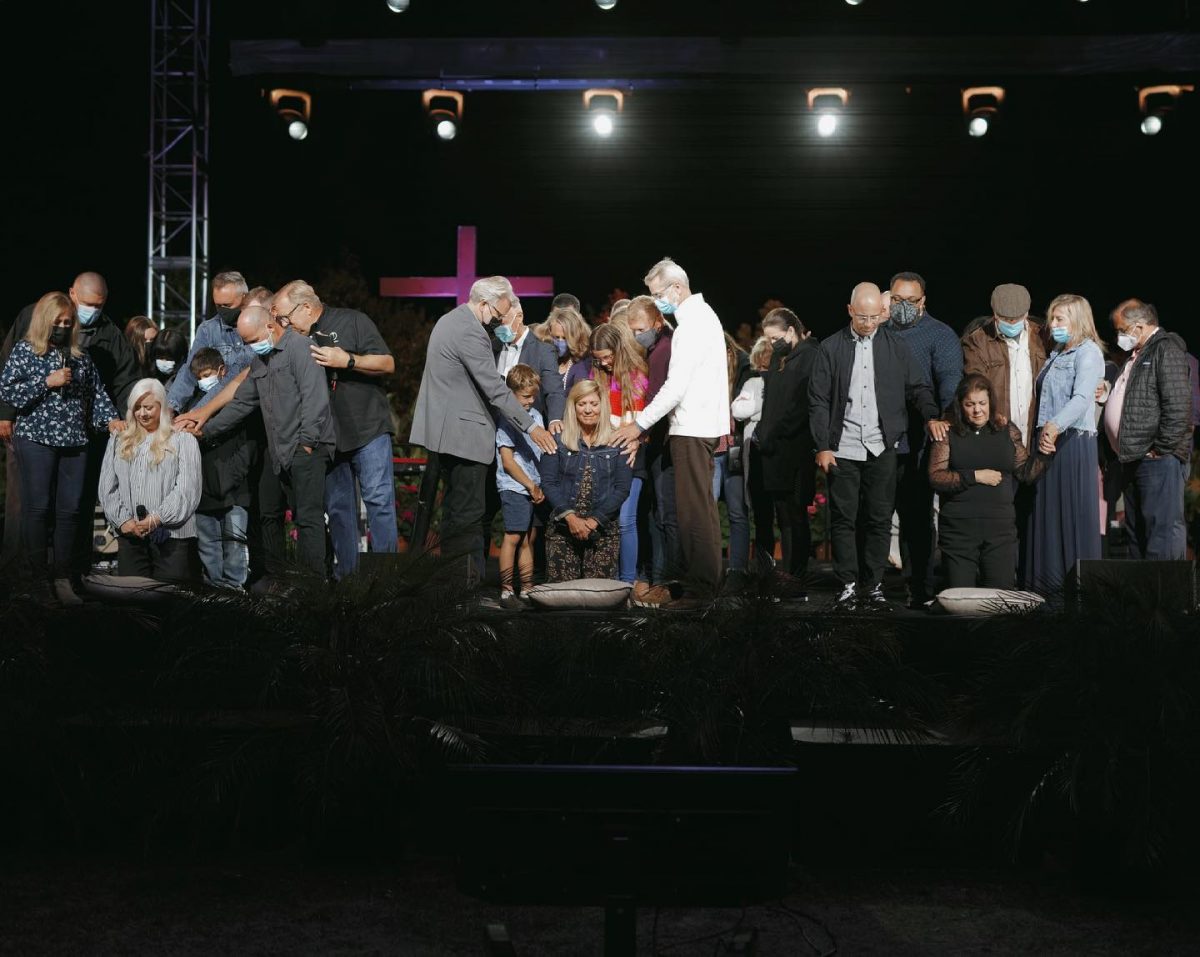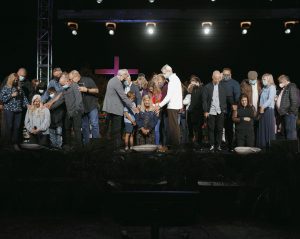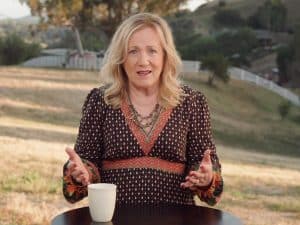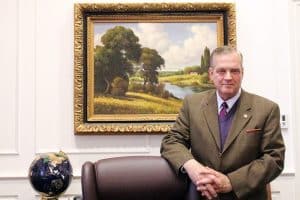
 This month, Word&Way launched a subscription email newsletter called A Public Witness. Each week, you’ll receive historical background, commentary, and analysis on an important topic at the intersection of faith, politics, and culture. For just $5 a month (or $50 for the whole year), you can have expert, entertaining insights delivered straight to your inbox. Starting next week, the weekly Thursday edition of A Public Witness will only be available to paid subscribers. So, subscribe today to receive next week’s APW.
This month, Word&Way launched a subscription email newsletter called A Public Witness. Each week, you’ll receive historical background, commentary, and analysis on an important topic at the intersection of faith, politics, and culture. For just $5 a month (or $50 for the whole year), you can have expert, entertaining insights delivered straight to your inbox. Starting next week, the weekly Thursday edition of A Public Witness will only be available to paid subscribers. So, subscribe today to receive next week’s APW.
Last week a church ordained three new ministers.
Nothing about that sentence is unusual in church life EXCEPT that the congregation was Saddleback (the megachurch pastored by Rick Warren), the new pastors were women, and the congregation is the second-largest member of the Southern Baptist Convention. According to the SBC’s guiding document, the Baptist Faith & Message 2000, “the office of pastor is limited to men as qualified by Scripture.”
What would be routine in many places has proven quite contentious when done by a prominent congregation in a denomination committed to prohibiting women from pastoral leadership. Warren and Saddleback, who are better known for downplaying differences and denominational identity, have stirred up quite the doctrinal controversy. Our goal in this edition of A Public Witness is to help you understand what happened and why it matters to all Christians, not just those within the SBC.

Image from Saddleback Church’s Facebook page celebrating the ordination of Liz Puffer, Cynthia Petty, and Katie Edwards.
We are enthusiastically supportive of women in ministry and realizing gender equality within the church (and society), but many are celebrating Saddleback’s announcement as more historic than is warranted. Perhaps folks are unfamiliar with Antionette Brown Blackwell, the first female minister in the U.S., ordained by the Congregationalists back in 1853. Few also seem aware of Frances Townsley (ordained by a Baptist church in Nebraska in 1885) and other Baptist women who were ordained by various churches and authorities in the late 19th century.
It is also fair to wonder about the significance of this step within the bigger picture of Saddleback’s ministry. A church serving tens of thousands of members, with presumably dozens of pastors on staff, has a grand total of three female ministers? The elders who govern the church are difficult to identify but have been referenced in the past as all being men. Gender norms and expectations within our society in general, and churches in particular, still constrain the leadership women are allowed to offer. These ordinations should be heralded as progress, but they are also reminders that the stained glass ceiling exists.
This episode warrants attention, but there is something else happening underneath the debate about women’s ordination. There are competing visions for what the future of evangelicalism in America looks like. More interestingly, we believe this debate reveals how the Bible (and its interpretation) is often used as a tool for preserving power rather than a resource for sharing the Good News of Jesus Christ.
Will Saddleback Change the SBC or Vice Versa?
Rick Warren’s The Purpose Driven Life is one of the best-selling books of all time. He has hosted forums with presidential candidates. His own weight loss program draws national headlines. Arguably no pastor alive in the U.S. today matches his reach.
Saddleback Church continues to grow, even as the rest of the Southern Baptist Convention dramatically declines in numbers. While the amount of financial support Saddleback provides to the SBC is not publicly available, Warren has indicated that denominational giving is an important aspect of the congregation’s relationship with the SBC.
“I’m Southern Baptist, our church is Southern Baptist, and we cooperate in SBC missions support at every level both in the United States and with our IMB [International Mission Board] missionaries around the world,” he explained.
All this raises an intriguing question: what happens when America’s most prominent pastor ignites a dogmatic conflict within the country’s largest Protestant denomination?
Two churches, one in Georgia and one in Kentucky, were expelled earlier this year for affirming same-sex relationships. Multiple churches have been removed from their state conventions and local associations for calling women as pastors, including churches in California, Georgia, and Tennessee.
More famously, Bible teacher and author Beth Moore left the SBC this year over its handling of sex abuse cases, differences with leaders over their support for Donald Trump, and, yes, whether women were qualified to step into the pulpit. The latter became a controversy in SBC circles after she preached on Mother’s Day two years ago.
Warren’s wife, Kay, preached on Mother’s Day this year, just days after the church announced the new ordinations. And the only SBC church larger than Saddleback — Second Baptist Church in Houston, Texas — heard a sermon Sunday from Anne Graham Lotz, who her dad famously called “the best preacher in the family.” But these moments spark controversy. Moore left the SBC, and Lotz has been canceled from Southern Baptist events and criticized for challenging the denomination on the role of women in ministry.

Kay Warren delivers the message for Saddleback’s Mother’s Day services on May 9, 2021. (Religion News Service screengrab)
So, what’s next for Saddleback? Given this history and precedent, three possibilities seem to exist for Saddleback’s future within the SBC:
1. Saddleback is the exception. For political, financial, and public relations reasons, it is neither feasible nor advisable for SBC leaders to take action. The church faces short-lived criticism but no practical consequences.
2. Saddleback changes the SBC. This shift by a pastor and congregation of such notoriety gives permission for other churches and leaders to also embrace women’s ordination. This becomes the moment that opens the floodgates.
3. Saddleback is disaffiliated by Southern Baptists. Such action is taken to demonstrate that no pastor or church is bigger than the Convention itself. An all-male clergy is defended at any and all costs.
While we cannot predict the future, the most famous and loudest leaders within the SBC seem to be pushing for option #3 (perhaps because they fear the possibility of option #2).
Get cutting edge analysis and commentary like this in your inbox every week by subscribing today!
The Patriarchy Strikes Back
Reactions to the ordinations poured in quickly. Prominent SBC leaders criticized Saddleback and sought to rhetorically reinforce the doctrinal lines that had been breached. For instance, current SBC President J.D. Greear, pastor of The Summit Church in Durham, North Carolina, wrote, “I disagree with their decision to take this step, and would even say I find it disappointing. … God’s word clearly reserves the office of pastor/elder/overseer for qualified men.”
Perhaps no SBC leader took on Saddleback as forcefully as Al Mohler, president of Southern Baptist Theological Seminary in Louisville, Kentucky. Running to succeed Greear as SBC president in an election next month, Mohler seized the moment with the gusto of a seasoned politician. Responding on social media, in a provocative column, and on his podcast, his vociferous arguments are quite revealing for the larger debate.

R. Albert Mohler Jr. (Adelle M. Banks/Religion News Service)
First, there is the historical amnesia. Mohler wrote that “the issue of women serving as pastors and preachers in churches roiled the Southern Baptist Convention from the 1970s” until updates to the BF&M passed in 2000 closed that door. By painting this issue as emerging in the late 20th century, Mohler claims this is merely the result of “second-wave feminism,” an effort he complains pushes the “the declaration that women must be treated as equal with men and that would mean equal access to every profession and every office and the fulfillment of every public function.”
The egalitarian society Mohler fears and laments sounds awfully similar to Paul’s teachings in Galatians 3:28. But that’s not the point. Women as pastors is not an invention of the 1970s. In rewriting the past for his own ideological ends, Mohler ignores the long history of ordained women serving in ministry, including in Baptist churches, cited above.
Second, there is the use of the same logic and hermeneutic of enslavers when reading the Bible. That is not hyperbole. Mohler literally and knowingly embraces it.
Mohler’s initial response to Saddleback’s decision was sharing two Twitter memes quoting John Broadus, one of the four founders of Southern Seminary. In the first graphic, Mohler shared a quote where Broadus argued that Paul’s writings “definitely and strongly forbid that women shall speak in mixed public assemblies” and that’s “the most obvious meaning of the apostle’s commands.”
Another “obvious meaning” that Broadus found in the scriptures was support for the enslavement of Black people. He even practiced what he preached. In addition to enslaving people, he drafted resolutions for the SBC in support of the Confederacy and served as a chaplain in the Confederate Army. Although Broadus would eventually (in 1882) say slavery was wrong, he hadn’t yet repudiated it at the time he made the remark about women that Mohler shared. And even after turning against the institution of slavery, Broadus continued to preach against the equality of Blacks and in celebration of the Confederacy.
Despite that sordid history, Mohler continues to praise Broadus (and the other founders of Southern Seminary who enslaved people) for modeling “biblical orthodoxy” and “Baptist orthodoxy” (even though Greear last year decided to retire the SBC’s “Broadus gavel” because of the slavery ties). As the self-appointed enforcer of such orthodoxy today, Mohler continues to rely on figures from Baptist heritage and methods of biblical interpretation that justified heinous deeds in the past. Such scriptural readings miss the essential equality and personhood of all of us who are created in God’s Image (Genesis 1:27)
Some readers will recoil at this insinuation, but the logic is difficult to deny. Many of the verses and passages used to deny the legitimacy of female ministers are located near verses once used by slavery-supporting preachers. Claiming the latter set of verses should not be read literally because of their societal context but insisting on a literal interpretation of the former without any reference to those same contextual factors is either poor exegesis or a disingenuous argument. Biblical interpreters of all stripes agree that the hermeneutic used to read scripture should be consistent. Mohler’s approach fails both an interpretative and moral test.
We reached out to Mohler for comment about which perspective he considers more problematic: Broadus reading the Bible to justify slavery or Warren reading the Bible to justify ordaining women. Given that Mohler previously called one of us a “liberal nitwit,” we were not surprised at his lack of response.
Third, there is the scapegoating of women pastors for the struggles of the institutional church. In doing this, Mohler plays old hits that are out of tune. Mohler blamed the numerical decline in mainline Protestant denominations on “the feminization of liberal Protestantism.” He added that “liberal theology is the kiss of death for any church or denomination.”
Such outlandish arguments are intellectually dishonest, as we earlier noted the SBC’s own membership woes with 13 years of decline. Nobody would claim with a straight face that the SBC’s largest single-year drop in over a century — as reported last year — was caused by the SBC being a bastion of liberal theology!
Indeed, you could even argue that in a society where gender equality is increasingly accepted and practiced, the SBC’s stance on women in ministry has become a stumbling block to their message being considered by those they are trying to reach. Perhaps Rick Warren, a demonstrated expert in church growth, came to the same conclusion.

Rick Warren speaking at a Purpose Driven Life Conference in 2016. (Saddleback Church)
Don’t miss next week’s “A Public Witness.” Sign up now for this weekly email!
Ending the Drought
How we read the Bible matters. Not merely for personal salvation or community worship, but it also matters for how we shape our culture.
Mark Noll, an evangelical historian, highlighted the cultural impact of clashes over biblical interpretation in his book The Civil War as a Theological Crisis. He noted that the nation’s “political standoff that led to war was matched by an interpretive standoff.” Theologians, like Broadus, who justified slavery and secession didn’t merely add to the sounds of war but helped create them.
“The evangelical Protestant churches had a problem because the mere fact of trusting implicitly in the Bible was not solving disagreements about what the Bible taught concerning slavery. The country and the churches were both in trouble because the remedy that finally solved the problem of how to interpret the Bible was recourse to arms,” Noll wrote. “It was left to those consummate theologians, the Reverend Doctors Ulysses S. Grant and William Tecumseh Sherman, to decide what in fact the Bible actually meant.”
That “solution” to the question, Noll argued, is part of our continuing problem today. Since slavery “was abolished not by theological orthodoxy but by military might,” the interpretive clash was never actually settled.
Theologians like Broadus who backed slavery dismissed their northern critics before the war as liberals who undermined the authority of the Bible (sound familiar?). After the war, the groups that previously split over the issue of slavery remained separated. As Broadus preached against women pastors in Kentucky, the Northern Baptists (today known as American Baptist Churches USA), ordained their first female pastor in Nebraska — a woman who was inspired as a child by meeting Sojourner Truth, who escaped slavery and became an itinerant preacher and activist. The guns fell silent, but the Mason-Dixon line still ran through the Bible.
Many in the SBC remain committed to a worldview that defines and excludes people based on categories rather than competencies. But society is changing, with the retrograde take on gender roles losing cultural support. Mohler refers to these changes as a “gathering storm.” He started his column attacking Saddleback by borrowing a biblical metaphor from 1 Kings 18.
“‘Behold, a little cloud like a man’s hand is rising from the sea.’ That was the message the prophet Elijah heard from his servant. Then, ‘And in a little while the heavens grew black with clouds and wind, and there was a great rain.’ That’s the way issues often arise. At first, there is only a small cloud. Soon thereafter, here comes the downpour. Well, here it comes.”
In Mohler’s story, ordaining women in the 1970s was a little cloud that now threatens to bring a downpour. But for the people in that biblical passage, that little cloud brought what the hymnist (and Union soldier who marched with Sherman) called “showers of blessing — precious reviving again; over the hills and the valleys, sound of abundance of rain.”
After three years of drought, Elijah prayed for rain. It started as a little cloud and soon became a downpour that brought healing and new life to the land. The clouds were not a threatening menace but promises of renewal. Mohler found the right metaphor but misunderstood scripture’s meaning (notice a theme?).

(Steve Buissinne/Pixaby)
Warren, a pastor outside the “Bible belt” who has long been thinking about reaching unchurched people, is moving in a different direction. He avoided the partisanization of his church over the past few years — a time during which Mohler and so many other conservative evangelicals decided party should trump principles. And now Warren appears to recognize the importance of gender equality, something younger generations that often are missing from our pews value more than does the old guard leading many of our institutions.
What if the decline in our churches — the spiritual drought in our land — is the result of preventing people called into ministry by God from fulfilling their vocation? What if our witness is being irreparably harmed in an increasingly egalitarian world by churches who insultingly cling to a doctrine of “complementarianism” that is no compliment at all.
If Mohler and other SBC leaders attacking Saddleback had their way, then we’d all be missing out on the gifts of Julie Pennington-Russell, Jacqui Lewis, Terri Hord Owens, Katharine Jefferts Schori, Brenda Salter McNeil, and so many other women who have been faithfully pastoring.
Sooner or later — probably later, but Saddleback Church provides hope that it won’t be forever! — one of them will even become president of the Southern Baptist Convention.
As a public witness,
Brian Kaylor & Beau Underwood






